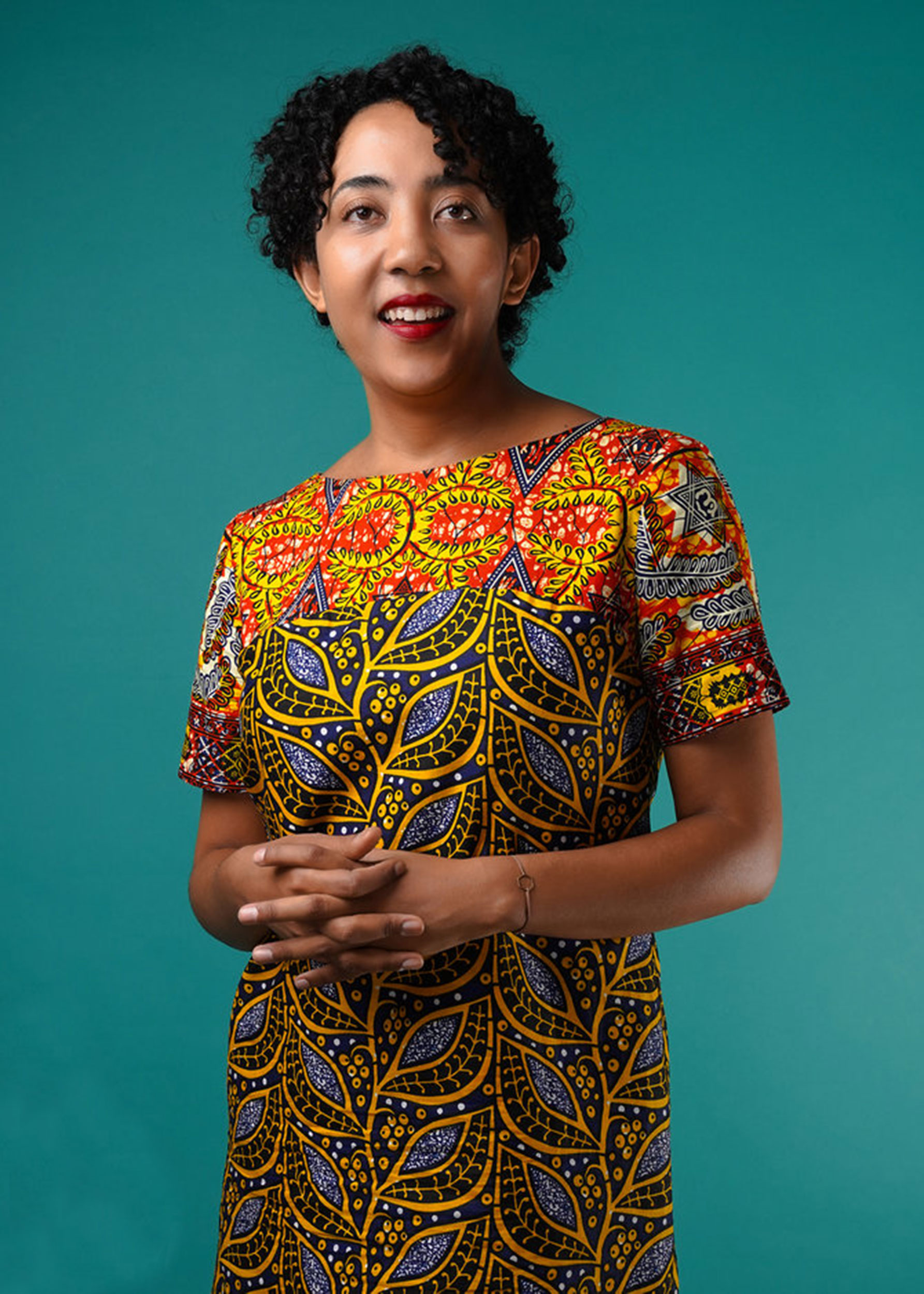A homecoming
Award-winning fiction writer Namwali Serpell returns to Harvard as professor of English

“I am more interested in curiosity than in perfection,” said Serpell. “What do you want to know? That’s more important than showing what you already know.”
Photo by Erich Bartlebaugh
Namwali Serpell knows something about being on the move.
Born in Lusaka, Zambia, in 1980, raised in Baltimore, Serpell lived briefly in England before moving to the United States. (She said they have a word in Zambia for people like her family: “movious.”) She is a critic and fiction writer, whose first novel, the award-winning “The Old Drift,” gracefully slips from historical fiction to science fiction and magical realism.
This fall Serpell returned to Harvard, where she got her doctorate in 2008, as a professor of English.
Serpell says the the move to Baltimore turned her into an avid reader and put her on the path to becoming a novelist.
“In Baltimore, I hadn’t gotten the memo about how to wear my hair and when to stop climbing trees. I had a hard time making new friends at first, so I read books,” she said. “The public library became my second home.”
Reading led Serpell to make notes for her own stories in a little red notebook. Many of those early ideas came from her experiences of being a stranger in a new land and focused on the battle and reconciliation of cultures, she said. “In some ways, the culture shock I experienced made me a reader, and that’s what made me a writer,” Serpell said. “I became a writer when I became an immigrant.”
Serpell took her love of reading and writing to Yale University, where she earned her bachelor’s in English and began writing her first novel, “The Old Drift.” She came to Harvard for graduate school, a time Serpell called “an absurd gift.”
“I have a lot of crucial memories from that time in my life,” Serpell said. “One’s 20s are often tumultuous, but I loved being a graduate student, which seemed to me to be an absurd gift: to be paid to read and write and learn from brilliant readers and writers like my professors.”
At Harvard, Serpell continued working on “The Old Drift,” a nearly 600-page epic that follows three Zambian families (Black, white, brown) over three generations, beginning in the late 19th century at the colonial settlement of the title, on the banks of the Zambezi River.
Published in 2019, when Serpell was an assistant professor in the English Department at the University of California, Berkeley, “The Old Drift” received much critical acclaim — along with accolades that included the Anisfield-Wolf Book Award for fiction, the Arthur C. Clarke Award for science fiction, and the L.A. Times Art Seidenbaum Award for First Fiction.
Serpell says she enjoyed her time in California, where she had taught at Berkeley since 2008, but feels almost as if she’s returned home.
“I’ve been joking that walking around Cambridge has me choking on Proustian madeleines,” Serpell said. She looks forward to joining her professors as a colleague, she said, adding, “I feel I might have the chance to win some of the arguments I started with them as a graduate student!”
Serpell will be teaching at least four classes this academic year, including a course on the work of Toni Morrison in the fall and one titled “Black Science Fiction” in the spring. The naming of the course is intentional, Serpell noted.
She admitted that she’s not particularly a fan of the word “Afrofuturism,” which is often used to describe Black science fiction. Both parts of the word, “Afro” and “futurism,” feel vague to her. Instead, she prefers to teach stories, novels, and films that fall under the banner of Afrofuturism as “Black science fiction.”
“Those three words, both separately and together, feel more rife with possibility to me. They are older words and interesting in their own right,” she said. “The thick ambiguity of the word ‘black,’ for instance, speaks to a negation of history, community, and energy. What does it mean to come from nowhere, from nothing? What does it mean to build identity or politics or art out of negative space?”
Serpell said that she’s looking forward to teaching the course is excited to offer courses she wishes she could have taken as a student.
As for what students should know about her before taking one of her classes: “I am more interested in curiosity than in perfection,” she said. “What do you want to know? That’s more important than showing what you already know.”







